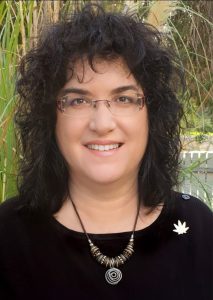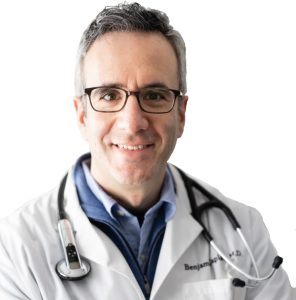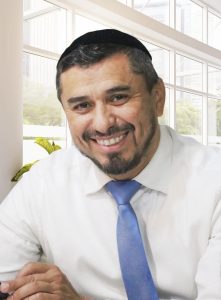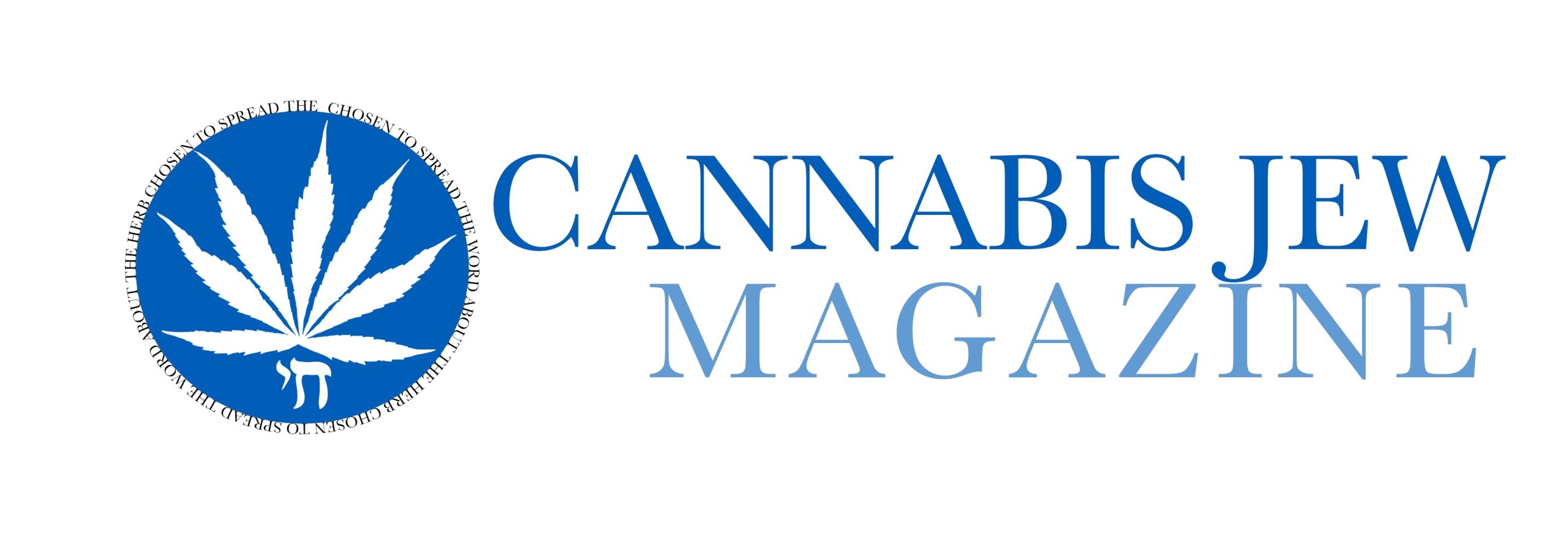The inaugural issue of Cannabis Jew Magazine was inspired by the desire to honour Dr. Raphael Mechoulam (zt”l) not just as the “father of cannabis research,” but as a Jewish hero who helped untold millions find relief from suffering and feel a little bit more optimisitic about the future.
So we asked a group of cannabis Jews known for their singular commitment to increasing access to medical cannabis in the areas of research, medicine, cultivation, law, and tech to share their reflections about Raphi’s life, and how we can best honour his scientific legacy and his legacy as a Jewish scientist.
We were also reminded by Nate Landau, Co-founder and COO of Snowtill Inc. (cultivating the best organic cannabis) of the well-known anecdote about how Raphi originally scored some cannabis to start his revolutionary research:
“In 1963 Dr. Mechoulam began working on the components of the cannabis plant, from which hashish and cannabis are produced. At that time Israel was a young country (only 15 years old) and very informal. Mechoulam’s friend happened to know Tel Aviv’s chief of police. The Chief of Police asked his friend if Raphi was a good person. When the friend answered yes, the Chief told Raphi to come to the station. When Mechoulam walked into the station, the chief handed him a suitcase full of confiscated hash. He took it back to his lab on public transportation.”
I thought of this story frequently last summer when I hustled to get this issue together, and contacted Jewish professionals I had never met to ask if they were willing to contribute, and trust that I knew what I was doing. Their only concern was whether I was a good person, and could be trusted to honour the truth and the Jewish traditon of dialogue; “the rest will come later.”
We also received a memorial video to honour Raphi’s memory from Dr. Anna Schwabe, a cannabis geneticist who serves as the Director of Research & Development at Shore Organics, Director of Cannabis Eductation at 420 Organics, an Associate Lecture Professor at the University of Colorado, Boulder and host of the podcast “The Dank Hour.”
Thank you to the extraordinary group of Jewish leaders who contributed their reflections about how we can best continue Raphi’s legacy and pursue Tikkun Olam (repair of the world).
 Professor Nirit Bernstein, PhD | Volcani Institute, Israel
Professor Nirit Bernstein, PhD | Volcani Institute, Israel
Professor Raphael (Raphi) Mechoulam z”l, the ‘Father of cannabis research’, was a true breakthrough pioneer in exploring the science behind cannabis. A world-renowned giant in cannabis research, whose groundbreaking achievements will continue to influence cannabis research for generations to come. His vision and contributions paved the way as he so eloquently expressed for ‘decoding the mysteries to be found within this incredible plant’.
For me, Prof. Mechoulam was an inspiration and guiding light. When I began my path in cannabis research a decade ago, I was the first Israeli scientist and one of the first in the world to be licensed to pursue studies into cannabis plant-science and cultivation. Prof. Mechoulam whose groundbreaking discoveries related to chemistry and pharmacology of cannabis, was enthusiastic about my research agenda to regulate the chemical profile of the plant by cultivation/environmental conditions. This led to fascinating, enriching, discussions regarding the interphase between his focus and my intention to focus on the plant itself. I am grateful to Raphi for his dominant impact on cannabis science; and for his continuous encouragement and interest in my line of research towards regulating the cannabinoid profile of this remarkable plant. I am blessed to have had the opportunity to know him, and for our scientific interaction.
When I think about Prof. Mechoulam and the impact he had I’m reminded of a short verse from the Talmud: “The just needs no memorial, for his deeds are his monument.” There is no question that Professor Mechoulam’s deeds manifested in his pioneering research, has made our world better and has provided hope to so many people suffering from difficult medical conditions. May his memory be a blessing “Zichrono Livracha”.
Prof. Nirit Bernstein is a principal research scientist and Head of the Cannabis Physiology and Agronomy Lab at Volcani Institute, Ministry of Agriculture, Israel. Her research focuses on cannabis physiology, and development of cultivation techniques for Cannabis sativa. She has a Ph.D in Plant Physiology from the University of California, Davis USA, and a B.Sc. in Agricultural Sciences from the Hebrew University of Jerusalem, Israel. Prof. Bernstein is an associate editor of ‘Journal of Cannabis research’, and of the Journal ‘Crop Science’, a member of editorial boards of 8 international scientific journals, and has published more than 120 peer reviewed manuscripts, invited reviews and book chapters. She is the Chair of the ‘Hemp-Cannabis’ Group of the ‘American Society of Horticultural Sciences” (ASHS); past Chair of the Crops for Nutrition and Health division of Crop Science Society of America (CSSA); and co-Chair of the Institute of Cannabis research of University of Colorado, Pueblo, Hemp growers association. She teaches four graduate courses on ‘Medical Cannabis’ and ‘Mineral Nutrition’.
In recognition of her international impact and leadership in cannabis research, Prof. Bernstein has recently won 4 awards: The ‘ElSohly Award’ for excellence in cannabis chemistry, by the American Chemical Society (ACS)-cannabis subdivision, 2022; the ‘International Agronomy award’ by the American Society of Agronomy (ASA), 2022; The ‘Outstanding international Horticultural Award’, by the ‘American Society of Horticultural Sciences’ (ASHS), 2023; the ‘Groundbreaking Women in Agriculture Award’ from the National Agricultural Council of Israel, 2019; and she was honoured, amongst the 11 most influential woman in the cannabis arena in Israel, 2022: by Mako, Keshet International. Prof. Bernstein specializes in regulation of plant-derived pharmaceuticals in medicinal plants by manipulation of environmental and agronomic treatments; optimization of agrotechniques for environmentally stressed plants; mineral nutrition of plants, and plant stress physiology.
 Dr. Benjamin Caplan, MD | CED Clinic
Dr. Benjamin Caplan, MD | CED Clinic
In the years before his passing, Raphi and I engaged in only a handful of discussions about medical cannabis and its health implications. Yet, with a profound sense of respect and personal gratitude, I reflect on the life and work of Dr. Raphael Mechoulam. His pioneering contributions to cannabinoid research have not only advanced our understanding of human biochemistry but also paved the way for life-changing therapies. As I recall our personal correspondence and shared commitment to innovation, I’m reminded of his grace, wisdom, and relentless pursuit of discovery. Dr. Mechoulam’s legacy, steeped in his Jewish heritage and influenced by his family’s journey to Israel, resonates deeply with my own endeavours in the field of medical cannabis. In honour of his monumental contributions, I, Dr. Benjamin Caplan, vow to carry forward his spirit of exploration and education about cannabinoid therapies, ensuring that his insights continue to inspire and inform my ongoing quest to enhance patient care and well-being.
In order to truly honour Dr. Mechoulam’s significant work in cannabinoid research and fulfill his vision for the field, the biomedical approach to research should be anchored in continued innovation, collaboration, and education. The need for increased research funding cannot be overstated, enabling more in-depth exploration of cannabinoid therapies and unlocking potential new applications. Collaborative efforts between research institutions and between countries can pool knowledge and resources, driving the field forward and honouring Dr. Mechoulam’s legacy of groundbreaking discovery and sharing knowledge globally. An emphasis on education and training of medical professionals was something deeply important to Raphi, as was passing on the knowledge and skills to effectively leverage cannabinoid therapies into patient care. This multifaceted biomedical approach, guided by a commitment to research, collaboration, and education, can create a lasting impact, resonating with Dr. Mechoulam’s lifelong dedication to advancing our understanding of cannabinoids. Dr. Mechoulam’s Jewish ancestry and heritage can be seen as integral to his approach to cannabinoid research, reflecting values of learning, collaboration, ethical commitment, and a historical and cultural context that shaped his life and work.
Dr. Raphael Mechoulam’s Jewish heritage has been a guiding force in his scientific approach to cannabinoid research, echoing values deeply rooted in Jewish tradition such as learning, inquiry, and ethical responsibility. His early life as a Bulgarian Jew and the migration to Israel not only influenced his personal trajectory but also resonated with Israel’s leadership in cannabis research, a land and people where cultural emphasis on discovery and innovation thrives. These connections between his Jewish identity and scientific pursuits created a fertile ground for groundbreaking work on cannabinoids, aligning with his relentless quest for understanding and improving patient care. Dr. Mechoulam’s legacy serves as an inspiring testament to the interplay of culture, resilience, and ethical commitment, reflecting traits that are central to many Jewish teachings.
Dr. Benjamin Caplan, a licensed and board-certified Family Medicine Doctor, has spent the past two decades applying rigorous and evidence-based standards to his clinical practice, which is now devoted to treating medical cannabis patients. His groundbreaking contributions to medical cannabis care and clinical research have earned him recognition as one of the 100 most influential individuals in the cannabis industry.
Dr. Caplan’s research is centered around patient care and developing illness-oriented formulations, where he has served as Principal Investigator for numerous pharmaceutical research studies and published in top medical journals, including the New England Journal of Medicine. His latest work, The Doctor-Approved Cannabis Handbook, which highlights successful cannabis therapies, is currently on sale at Penguin Random House.
In addition, as the founder and Chief Medical Officer of CED Clinic and EO Care, Inc., Dr. Caplan has made significant contributions to the field, bridging the gap between the divergent disciplines of traditional medicine and evidence-based cannabis care. CED Clinic offers medical services and oversight to those seeking cannabis treatment, and has become an internationally recognized premier medical cannabis clinic for both adults and pediatric patients. EO Care, Inc. is a digital health company focusing on cannabinoid-based treatments, offering a scalable, affordable, and data-informed cannabis care with ongoing clinical oversight. EO is poised to provide healthcare payer networks with the first path to cover cannabis-based guided therapies, grounded in clinical evidence.
Dr. Caplan’s academic credentials include a degree from Williams College, a medical degree from Tufts University School of Medicine, and residency training in Family Medicine at Boston Medical Center. benjamincaplan.com | CEDclinic.com/drcaplan | www.EO.care

Yehoshua Maor, PhD | Chief Scientist, Phytor Ltd.
Prof. Mechoulam was born in Europe between World War I and World War II. Those times of uncertainty and instability surely led his parents to teach him that one cannot control the winds and that you should adjust the sails. As far as I remember, his first grant from NIDA for his research on Cannabis aimed at showing how bad Cannabis is. Prof. Mechoulam adjusted the sails and we see the results of his research as a legacy today. I believe this ability to “adjust the sails” is something that he received from his parents at early childhood.
I do not necessarily see need for changes but for further development of his attitude towards scientific knowledge. Politics, legislation and regulation will always be there and will always be challenging for the basic science to become applied science. I believe this is good for our safety. Prof. Mechoulam taught me two words: interdisciplinary and transdisciplinary research. If he would stick only to chemistry he would not have left this legacy. He always worked with different groups from different fields of science. By doing so, he managed to expand the knowledge on Cannabis, cannabinoids and the endocannabinoid system, shedding further light on his previous discoveries. From my point of view I see no need for changes but for more of his attitude: transdisciplinary and interdisciplinary research. His attitude determined his altitude. Legislation and regulation will eventually follow the steps of sound scientific finding and will advance based on the holistic understanding of the endocannabinoid system and its ligands. This is how I believe we will be able to better honour his legacy.
Dr. Yehoshua Maor is a Pharmacologist/Toxicologist at Phytor Lab for Drug Development, Jerusalem. He completed his graduate studies at the Hebrew University under the supervision of renowned Prof. Raphael Mechoulam. His research focused on both chemistry and biology of non-psychotropic cannabinoids. Yehoshua was also a postdoctoral fellow at Harvard Medical School (Harvard Institutes of Medicine) in Boston before making a shift to his career back in Israel as the coordinator of the Hebrew University Center of Excellence in Agriculture and Environmental Health.
In addition to his activities as a lecturer of Toxicology at the Hebrew University, Dr. Maor is the founder and senior consultant of Phytor Lab and CSO/founder of Resorcix (https://www.israel21c.org/a-natural-solution-to-prevent-spoilage-of-clear-beverages/). He is involved in several international R&D projects of cannabinoid-based products. His research partnerships span from Morocco to Germany, to Canada, US and Spain. Partnerships funded by private investors as well as non-dilutive funding rely on Dr. Maor’s connections and experience which include wide international and multidisciplinary skills in advanced science and research.
His research groups at Phytor Lab and Resorcix have published several academic articles in a wide range of knowledge in multidisciplinary and transdisciplinary areas. Dr. Maor’s expertise include medicinal, organic and analytical chemistry, cannabinoids, pharmacology, toxicology and environmental health. Phytor | Resorcix Ltd.

Karina Bershteyn | Co-Founder, ElionMED
Coming from a Jewish background, I grew up with a family that valued carrying on ancient traditions that were heavily rooted in natural, ancient healing remedies. These were passed down for generations, and to this day are taken just as seriously in my family as modern-day medicine. To me, it makes sense that Raphael was inclined to explore such a natural healing plant like cannabis. It’s also very Jewish of him to go against the status quo to explore something that he believed could be groundbreaking and change the world as we know it.
When I started my own medical cannabis journey, I was determined to understand all my options and learn whether cannabis could help me. I found myself feeling incredibly lost and unsupported when trying to seek guidance from my healthcare practitioner. Speaking to other patients, many of them were experiencing the same struggles that I was, which indicated to me that there was a disconnect here and a problem that needed a solution. That was the driving force for why I co-founded ElionMED.
ElionMED bridges the knowledge gap and improves access to medical cannabis for patients. Patients deserve to know all their options when it comes to their medicine, which is why I believe in making this information more widely understood. Much like Raphi experienced, it’s an uphill battle trying to communicate the benefits of cannabis when there is so much stigma surrounding it, but we are determined to make a positive change.
There is a lack of education around cannabis in medicine, and because of that, there is lack of support for patients who are seeking this information. The endocannabinoid system is not widely understood in medicine, and unfortunately, many healthcare practitioners are unable to answer their patients’ questions about cannabis. When we spoke to practitioners, the majority said that they do not feel comfortable recommending (or even talking about) cannabis. They feel they don’t have enough information about the benefits or risks associated with cannabis use, especially with the other pharmaceuticals their patients may be taking. Clinicians are also so busy that they feel they do not have the time to do extensive research outside of office hours.
In order to better honour Raphi’s research and legacy, we need to spread awareness and find a way to bring this information to the medical community in a way that is accessible and objective. That is what we bring to the table with ElionMED. It is a free tool that guides practitioners through the fundamentals of prescribing medical cannabis and product discovery. Working with our medical advisors and leveraging extensive research, we created an easy-to-use resource for practitioners. It makes recommendations based on their patient’s needs and helps them understand any possible interactions that cannabis may pose with their patients’ current medical regimes. Our goal is to provide practitioners with all the information they need in order to make their own best-educated decisions around cannabis.
Karina is the co-founder of ElionMED, a software that guides healtcare practitioners through the fundamentals of prescribing medical cannabis, in real-time, during the appointment. Karina specializes in innovation for cannabis tech startups, having led teams as a product manager and UX designer. Her leadership skills have been instrumental in guiding her teams to create solutions that solve complex problems in the cannabis industry. She is a medical cannabis patient and has felt the shortcomings of the patient experience first-hand. Karina is driven to improve access to medical cannabis information for practitioners and their patients. ElionMED
 Ethan Russo, MD | Founder, CEO CReDO
Ethan Russo, MD | Founder, CEO CReDO
Raphael Mechoulam grew up in a world in turmoil on the eve of events that would lead to fascist Bulgaria, the Nazi takeover of Europe and the Holocaust. He witnessed his father, a respected physician, exiled to a concentration camp until he proved indispensable to maintenance of public health and was released. Raphi was confronted first-hand with stark truths: Jews are to be considered different and have to learn to operate within the confines and restrictions imposed by the ruling class of the moment. History has illustrated the narrow lanes in which Jews could operate, sometimes as merchants, but always as scholars. Whether it be learning the Torah, deciphering the mysteries of Talmud, or extending scholarship to science and medicine, these were the eternal traits valued by Jewish society. Many of the great minds of Jewish history were what are commonly termed Renaissance men. Maimonides was one such—at the one hand, a physician and scientist, on the other, a philosopher and theologian. Raphi was another, one who understood that to decipher a scientific mystery, it is necessary to examine its foundation and implications at every level, from the molecular to the molar, akin to the progression from the atom to galaxies, to fathom the various perspectives and their meaning. Emigration to Israel provided him the opportunity develop his intellectual gifts.
Many scientists concentrate and investigate single mechanisms in isolation, which may be useful to a point, but runs the risk of failing to understand their context. Raphi applied a more expansive outlook, and it was this quality that allowed him to fathom how anandamide and 2-arachidonylglycerol molecules lay at the foundation of the endocannabinoid system itself, the basic modulator of animal physiology. This global mindset is a critical feature of the most outstanding scientists and is a philosophical outlook that should be cultivated in the educational system in the hopes that other great minds will emerge.
Ethan Russo, MD, is a board-certified neurologist, psychopharmacologist, and Founder/CEO of CReDO Science https://credo-science.com] He is also Chief Medical Officer to Andira Pharmaceuticals Andira – Bringing Healing to Life, Senior Medical Advisor to Canurta Home | Canurta and Medical Director of Breeder’s Best HOME – Breeder’s Best – Connecting Independent Cannabis Breeders to World Markets (breedersbest.com)
Dr. Russo was Director of R&D for the International Cannabis and Cannabinoids Institute, 2017-19, Medical Director of PHYTECS, 2015-2017, and from 2003-2014, Senior Medical Advisor, medical monitor/study physician to GW Pharmaceuticals for numerous Phase I-III clinical trials of Sativex® and Epidiolex®.
Dr. Russo was a clinical neurologist in Missoula, Montana for 20 years. He has held faculty appointments in Pharmaceutical Sciences at the University of Montana, and Medicine at the University of Washington. He is author/editor of seven books and has published over than 60 peer-reviewed articles.






